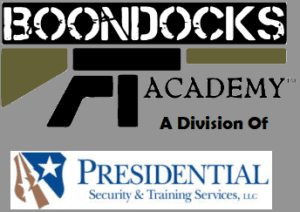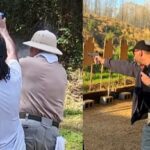Competition or Self-defense: Who Makes the Best Shooting Instructor?
Recently I saw a post on social media trying to answer the age-old question, who makes the best firearms instructor; a self-defense instructor or a competition instructor? This question is almost as old as the 9mm vs 45 debate and can be just as divisive, but I think it is worth exploring. The first question you need to ask yourself is what are you training for? Are you training to improve at the local shooting match, or carry a gun and better prepared to protect yourself? If your answer to that question is the first option, then the chose is simple. A competitive shooting instructor will likely be a better choice to instruct you on efficient gun manipulation and body mechanics that will help you perform better in a match. If your answer to the question is the latter, then it is a little more complicated.
If your goal is to learn to carry and be prepared to defend your life with a handgun, the two most important aspects to master are; 1) Get the gun between you and the bad guy as soon as possible and 2) Put multiple shots into an anatomically important spot on the bad guy in rapid succession. In theory, both types of instructors should be able to teach that, but not all competition instructors carry a gun on a regular basis, and not all self-defense instructors go beyond teaching gun safety and accuracy. If your competition instructor only shoots with a $5,000 gun that looks like it came from the set of Star Wars and draws from hip holster that hangs down to about his knee, then he may not be familiar with the pros and cons of the different types of concealed carry holsters or the challenges of shooting sub-compact or micro pistols. On the other side, if your self-defense instructor is only teaching classes to pad his retirement fund and only teaches the minimum requirements dictated by the state, then you may not be exposed to the type of shooting skills need to save your life.
If your competition instructor is spending hours trying to teach you to perform a 1-second reload and shave 2 tenths a second off the process to chamber a round, then that is probably wasted time. The chances of you having to reload your firearm during a gun fight are extremely low. Both types of instructors should be teaching you about situational awareness, conflict avoidance, the legal ramifications of using deadly force, but neither of them will have to teach you how to shoot fast. If your life is in danger, your body will force you to pull the trigger as fast as you can. So, if your self-defense instructor isn’t teaching you about recoil mitigation and the difference between aimed fire and target focused shooting you are missing an important aspect of a self-defense encounter.
My suggestion is to find out what your state’s requirements are to obtain a permit and start there. While half of the states don’t require a class to carry a firearm, there are probably still some type of CCW classes offered in your state and you should at least start there. In that class you will likely get a refresher on firearms safety and the fundamentals, which never hurts, but more importantly you are likely to get much more information about the laws surrounding concealed carry and legal use of force. These two topics alone are usually worth the price of admission. If in that class you don’t learn to draw from concealment and shoot at a realistic self-defense pace, it doesn’t necessarily mean your instructor was bad, but it does mean you will need to get more training. Some states require instructors teach a state mandated curriculum or specifically limit what instructors can teach. After the class, ask you instructor if they offer any “next level” classes more tailored for self-defense. If not, then you may want to seek out a competition instructor and schedule some private lessons specifically with the skills mentioned above. Another option is to ask the instructor or range if they know of any shooting competitions in the area and find out if you could go out and watch. Competitive shooters are usually very welcoming of new shooters and will often help you get involved and even lend you gear if you need it.

